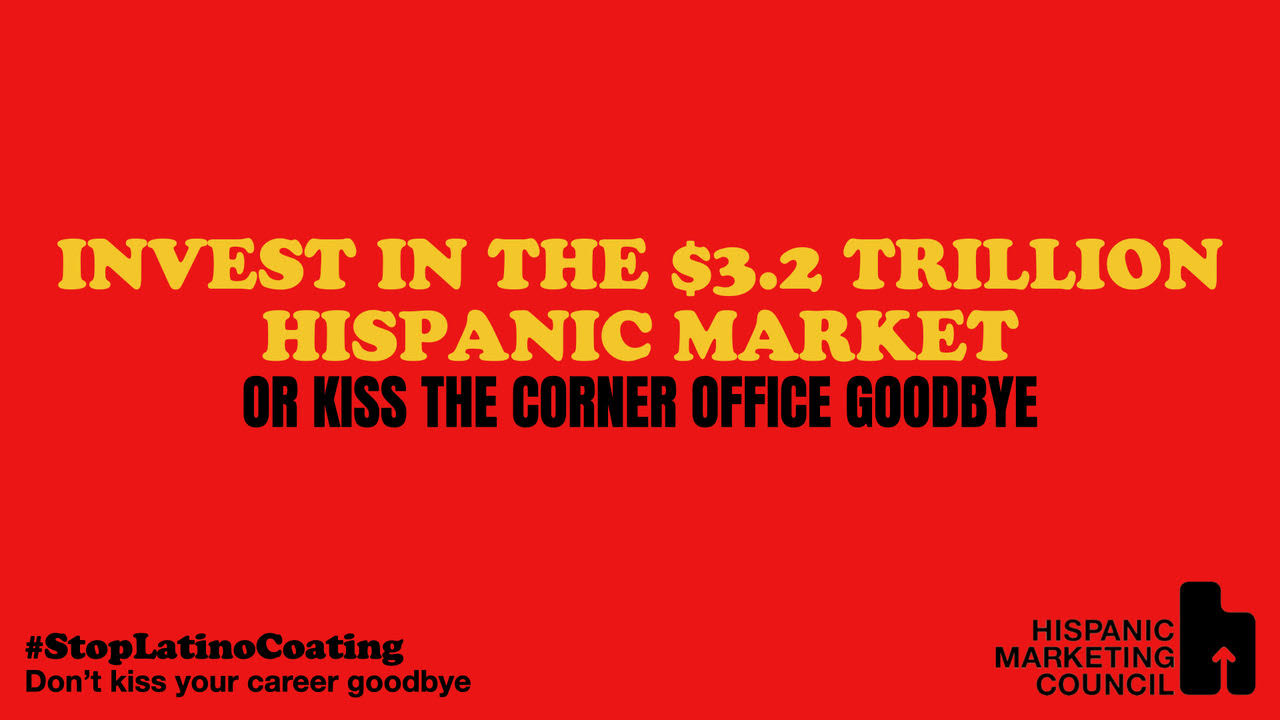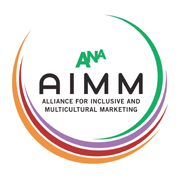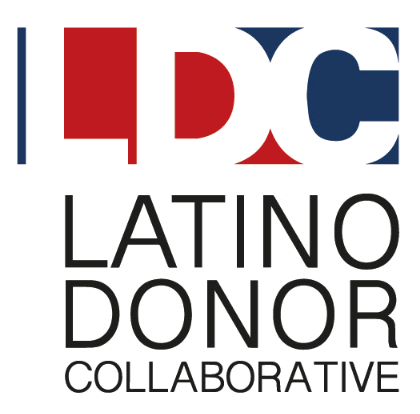Management
If you accept the call to leadership, you must be willing to be misunderstood, criticized, opposed, accused — even rejected.

If you accept the call to leadership, you must be willing to be misunderstood, criticized, opposed, accused — even rejected. By Lenore A. Brinson - Executive Director | Nonprofit Management
Inflation is only beginning to bite

In a blog about inflation you might expect some reference to an obscure “law” of economics. I’m going to pivot and refer to an obscure law that doesn’t find its genesis in economic theory — Hofstader’s Law: “It always takes longer than you expect, even when you take into account Hofstader's Law.”
ANA EDUCATIONAL FOUNDATION encourages Giving Back to Marketing Industry’s Next Generation

Kicking off on GivingTuesday and through the end of the year, the ANA Educational Foundation (AEF) is doubling down on donations for its University Membership Program. The ANA Educational Foundation’s Give the Gift of ANA University Membership program allows organizations to donate an ANA membership to a school of their choice. These memberships enable both professors and students to tap into the vast network of industry programs, speakers, and curricula that the ANA and the AEF offers academia and future talent.
“Embracing Purpose Beyond Politics: A New Opportunity for Brands in a Divided America.”

As the dust settles on one of the most divisive elections in recent memory, brands have a rare opportunity to refocus on their purpose. Beyond the bitter politics and polarized discourse, there’s a deep desire among consumers for connection and unity. This presents a pivotal moment for brands: they can now help bridge divides, uplift communities, and inspire optimism. But this requires brands to step boldly into their purpose-driven messaging—while avoiding the political pitfalls that can alienate their audience. By Luis Miguel Messianu. Founder, President-Chief Creative Officer- MEL
How to evaluate agency proposals

Very few marketers are taught how to evaluate an agency proposal, whether it is a formal written response to an RFP, a presentation or some other format.
“Brands and Politics”

You can say that in today’s environment brands are running naked in the marketing forest! Every day ushers in a new 'culture war' as societal progress meets resistance. Brands are being cancelled and called out by minority yet vocal communities, divided in their values from both the alt-right and liberal left. With societal issues now purposefully being made political, what does this widening ideological gulf mean for the future of brands? Is the marketing industry totally out of touch with consumers and the realities of the day? Or are we at an inflection point where the industry can help bridge the gap across the dissenting voices? By Luis Miguel Messianu - President-Chief Creative Officer - MEL (Messianu/Edelman/Lerma)
The State of Latinas in Corporate America 2024

The last five years of Lean In’s research on the state of women at work reveal a disturbing trend: Latinas face the steepest climb up the corporate ladder and end up the most underrepresented of all groups of employees in the C-suite. Despite these barriers, Latinas remain highly ambitious and increasingly committed to advancing.
Intersectionality in Marketing

From "diversity" to "inclusivity," no other term has been arguably misappropriated, misused, and co-opted in the business world than the concept of intersectionality, coined by renowned Black feminist legal scholar Dr. Kimberlé Crenshaw in 1989. Whenever I have worked alongside clients and marketing colleagues as a consultant, it was common to hear the term "intersectional" used to describe an array of things: Brands, marketers, research participants, or approaches to strategy.
THE END OF AN ERA : Eduardo Caballero passes – se te extraña

Eduardo Caballero The Godfather of Hispanic Marketing & Radio in our Industry passed in 2023. For those that work with Eduardo Caballero and those that knew Eduardo will be eternally impacted by the man, the professional, the pioneer and the Industry Advocate.
HMC TO ADVERTISING & MARKETING EXECUTIVES: STOP LATINO COATING

In today’s competitive marketplace, CMOs face immense pressure to achieve growth. Proper investment and authentic engagement with U.S. Latinos, who are influencing mainstream culture and fueling demographic shifts is the clear answer. The Hispanic Marketing Council (HMC) unveiled a new campaign at its 2024 Annual Summit calling on the advertising and marketing industries to “Stop Latino Coating.” The resounding message? Give Hispanic marketing the weight it deserves, connect authentically or kiss your careers goodbye—#STOPLATINOCOATING.
Multicultural Marketing in 2024: Change is Here, Opportunity Awaits [REPORT]

The past year has been a roller coaster ride for multicultural marketing practitioners. From the recent Supreme Court ruling on affirmative action to increased scrutiny of diversity, equity and inclusion (DEI) initiatives, companies are carefully assessing how these factors will impact their multicultural marketing budgets. ThinkNow shares this curiosity and has recently surveyed corporate decision-makers in multicultural marketing and multicultural consumer research, aiming to understand how they are strategically navigating the current landscape.
BEHIND THE CAMERA: Creativity and Investment for Latin America & the Caribbean [REPORT]

This document provides an overview of the audiovisual sector in Latin America and the Caribbean. It uses a hybrid methodology that combines primary and secondary research, as well as nearly 100 interviews with key stakeholders in the industry. We present a map of the region, highlighting its milestones, with a focus on public policy debates and 21st-century skills. We include conversations with emerging creators, producers, entertainment executives, as well as with members of film associations and institutions. Our goal is to kickstart a conversation on the potential of this strategic sector and explore the challenges faced by its workforce. For this purpose, it is necessary to understand where professionals train, how they join a production, and which technical skills are in greatest demand. With 2025 in sight, our region must invest in training and make the most of the opportunities presented by this growing industry.
U.S. Population Projected to Begin Declining in Second Half of Century

The U.S. population is projected to reach a high of nearly 370 million in 2080 before edging downward to 366 million in 2100. By 2100, the total U.S. resident population is only projected to increase 9.7% from 2022, according to the latest U.S. Census Bureau population projections released today. The projections provide possible scenarios of population change for the nation through the end of the century.
ANA’S AIMM Research reveals Consumers want Brands to commit & not back down from Diversity & Inclusion Practices [INFOGRAPHIC]

If a brand backtracks on their support for social causes, 77% of consumers would either immediately stop purchasing or look to purchase other brands more supportive of their views, according to a new study. Most of them (76%) will not return to that brand or will only return if the brand changes its practices, found a new report in which more than 9,000 consumers were surveyed.
Why we practice radical candor in providing pitch feedback

One of the great frustrations for agencies for agencies, beyond coming second is the lack of constructive feedback during and at the end of the pitch process. In my agency experience working on new business pitches, the quality of feedback was poor at best and non-existent at worst. Something that still occurs today, with the industry filled with memes on the internet of poor feedback, such as “It was so close, you came a close second”.
Why do we have leaders?

Leadership is all about enhancing and enabling people to develop to their fullest potential by developing their abilities and empowering them to become their best versions. Here is why.
Have you ever wondered about the intricacies of human error?

Understanding its various forms can be pivotal in preventing mishaps. By Paul Hylenski
The Management Zoo.

Avoiding toxic people (as well as not being one!) is essential for your organization’s and team’s success. Which of these 10 types do you recognize? Welcome to the Management Zoo. By Jeroen Kraaijenbrink
Is Hispanic Advertising Now Victim of a Wolf in Sheep’s Clothing?

Over the last month, data and research reports have validated the ongoing momentum of several trends about the U.S. Hispanic consumer audience. The common take-away? This segment continues to be the primary growth-driver across many business verticals, categories and brands. Perhaps most profound and compelling, a recent report from the UCLA Center for the Study of Latino Health and Culture: If the U.S. Latino population were its own country, the GDP would be the world’s fifth largest, outpacing even the United Kingdom, France, and India. What’s more, out of the world’s top 10 largest GDPs, the U.S. Latino GDP would be the second-fastest growing from 2020 to 2021, second only to China. Additionally, the latest Claritas Hispanic Market report shows Latinos are adding 4,021 people per day to the U.S. population, offsetting population daily declines in the non-Hispanic White segment (-2,340) and far outpacing the gains in African American/Black and Asian/Pacific Islander segments, at 918 and 828 added per day, respectively. In short, the Latino purchasing power and consumerism is showing no signs of plateauing, let alone declining. By Louis Maldonado
2022 LDC U.S. Latino GDP Report [REPORT]

As a summary for the economic performance of Latinos, the 2020 U.S. Latino GDP is extraordinary. The total economic output (or GDP) of Latinos in the United States was $2.8trillion in 2020, up from $2.1 trillion in 2012, and $1.7 trillion in 2010. If Latinos living in the United States were an independent country, the U.S. Latino GDP would be the fifth largest GDP in the world, larger than the GDP's of the United Kingdom, India or France.




























